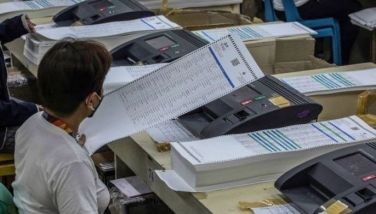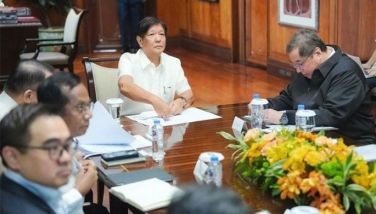Amid probes, Senate to pass key priority measures

MANILA, Philippines — Despite ongoing Senate investigations into various national issues, Senate President Francis Escudero gave assurance that the legislative chamber remains committed to passing crucial laws for the benefit of the public, including priorty measures identified by the Marcos administration.
Congress is set to go on recess on Sept. 27 and resume on Nov. 4.
At present, the Senate committees have been investigating various issues, including the escape of dismissed Bamban, Tarlac mayor Alice Guo and Philippine offshore gaming operators.
With only a short time left before the Senate shifts its attention to the 2025 national budget, Escudero emphasized the urgency of passing three to four more of President Marcos’ priority measures, vowing that the chamber will maximize its efforts in the remaining days.
Even as several committees of the Senate are in the thick of investigating issues of national interest, Escudero said the chamber will not be distracted from its duty “to pass laws for the benefit of our people.”
“In the remaining days before the Senate starts to focus exclusively on the proposed 2025 national budget, we are looking at passing about three to four more of the priority measures of the President. There is no time to waste, and we will strive to accomplish even more under my watch,” Escudero said.
He added that the Senate was able to act on 12 key measures, all in just a little over 30 session days since Escudero was elected as Senate president on May 20.
“Nine of the 12 bills are up for signing by President Marcos, three are awaiting action at the bicameral conference committee level and one is up for approval by the House of Representatives,” he said.
Among the priority bills up for signing by the President are the Academic Recovery and Accessible Learning Program (ARAL) Act, Magna Carta of Filipino Seafarers, Anti-Agricultural Smuggling Economic Sabotage Act, Self-Reliant Defense Posture Revitalization Act and the Philippine Maritime Zones Act, which delineates the maritime domain of the Philippines and declares the rights and entitlements of the country over its maritime zones, including the underwater features for the enjoyment and cultivation by Filipinos in compliance with the United Nations Convention on the Law of the Sea.
Also up for signing are the imposition of value-added tax on digital transactions, Corporate Recovery and Tax Incentives for Enterprises to Maximize Opportunities for Reinvigorating the Economy (CREATE MORE) bill, Enterprise-Based Education and Training Framework Act and the amendments the Rice Tariffication law.
Escudero said overall, a total of 106 bills, including those local in scope, were approved on third reading, 26 of which have been enacted into law since May 20.
“We acted with urgency on the priority measures of the President, which were also part of the common legislative agenda of both chambers of Congress. Again, this is more about the quality of laws rather than quantity. These are high-impact laws that Malacañang and Congress agreed upon to prioritize,” he said.
Escudero stressed that the Senate would apply the three-way test in prioritizing bills: will it make the lives of the people easier? Will it help us move faster? Will it make our people’s burdens lighter?
- Latest
- Trending






























